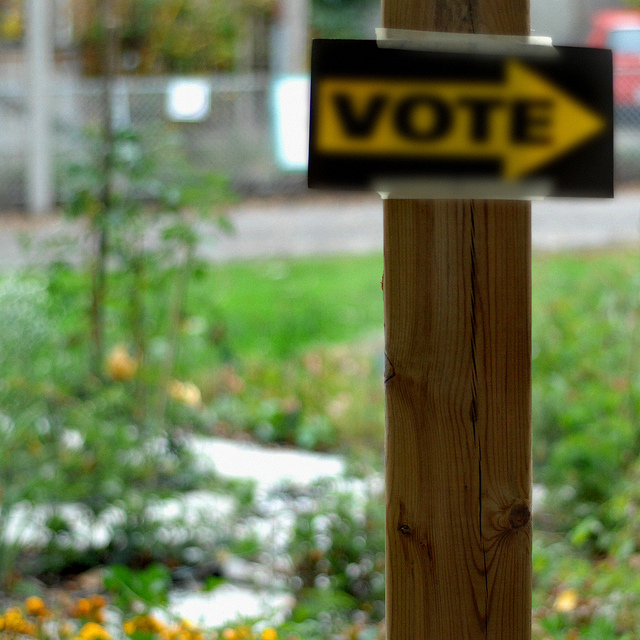The act of voting is less simple than it seems. It looks straightforward. Mark paper, stuff in box. But precisely because it’s so simple, it’s susceptible to multiple interpretations. It’s like communion: person kneeling takes cracker in mouth. Ya, right. Try explaining what that’s about. Sheer mystery.
Voting too often seems ritualistic. People treat it solemnly. It’s done in secret; your decision stays between you and the universe. It’s like confession without the priest. It’s also often symbolic, like communion, the hajj or opening the door for Elijah. In fact, I’d argue that the basic ambiguity in casting a vote lies between treating it as a symbolic act or a practical decision. The impulse to see voting symbolically is all the greater because, with the general decline of organized religion, people feel a lack of ritual and symbolism in their lives. So it’s tempting to insert them where you can.
Here’s an example. In the federal election of 2006, Jack Layton’s NDP urged voters to give the Liberal government a “time out” because of the patronage scandals. Those who followed his advice got eight years of Stephen Harper (and counting) plus they lost the very practical benefits of a national child-care program and the Kelowna Accord with native peoples. In this Ontario election, Andrea Horwath’s NDP echoes that message: their first ads tell voters to put the Liberals in the penalty box. The practical result could well be a Tim Hudak government and the loss of all the NDP-ish items that were in the budget Horwath rejected. What’s the payoff? It’s entirely symbolic. You get to “spank” the Liberals for their scandals and corruption, another term used frequently.
Here’s a right-wing example. In the National Post this week, certified right-winger Tasha Kheiriddin announced she wasn’t voting for Hudak’s PCs because they won’t protect funding that helps her autistic child. That’s practical. Her fellow columnist Jesse Kline decried her choice as selfish (rather than practical) and argued folks like them “should recognize and embrace” Hudak’s cuts, “not as a good thing, but as a required dose of strong medicine.” It’ll be good for you Tasha, swallow it like a man. It’s not actual medicine of course, it’s a symbol. You also find this on the left with people who proudly vote Green, with no expectation of winning, while possibly aiding anti-environmental candidates.
For such people, voting becomes a symbolic exercise in moral rectitude and self-justification; their vote is a statement, even if only to themselves. It proves their purity and perhaps piles up evidence of their moral worth for when they arrive at heaven’s gate and request entry. They stood strong for the truth.
Here’s another factor that pushes toward voting symbolically rather than practically. The less governments do that practically improves people’s lives in areas like education or housing, the less reason there is to vote in practical terms. So as governments of all stripes cut back socially useful programs in the holy name of austerity and balanced budgets, the more plausible it is to use your vote as a symbolic statement. I don’t want to overstate this. People are quite able to vote or act against what seem like their “real” interests in order to take a symbolic stand. That used to be called “false consciousness” in Marxist jargon — an offensive, condescending term. I think I recall using it myself.
Having said this, I suspect it sounds like I’m down on voting symbolically. I’m not. To each her own. I’m unsympathetic to some of the particular metaphors recently invoked: parentally, I don’t find time-outs useful and as a hockey fan I consider penalty boxes infantile and embarrassing. There should be another way to remove a player from the action. But humans are symbolizers, we identify our private selves with larger realities and I think that makes sense since each of us really is part of something more: the species, the planet, the past, the future. Those symbolic extensions give our lives meaning: religious meaning, patriotic meaning, ethical meaning, Leafs nation, Ford nation. The only question is whether an election — or this particular one — is where you want to make that kind of statement about larger, sometimes cosmic, significance.
This article was first published in the Toronto Star.
Photo: postbear/flickr



